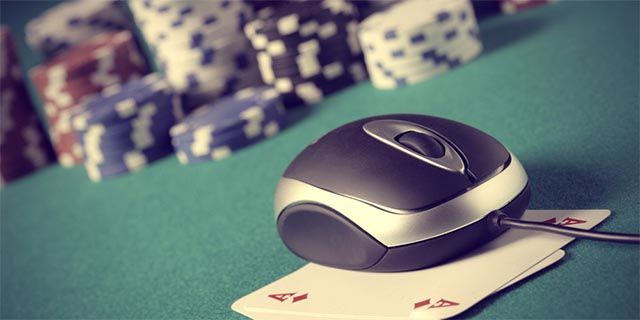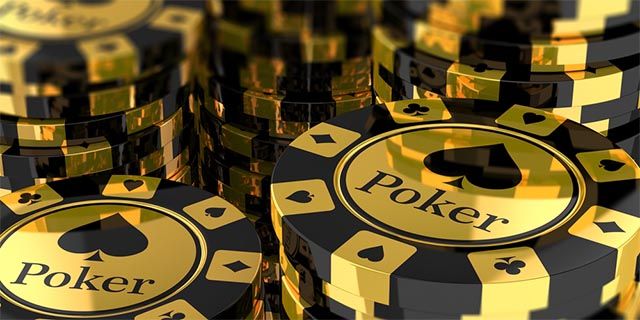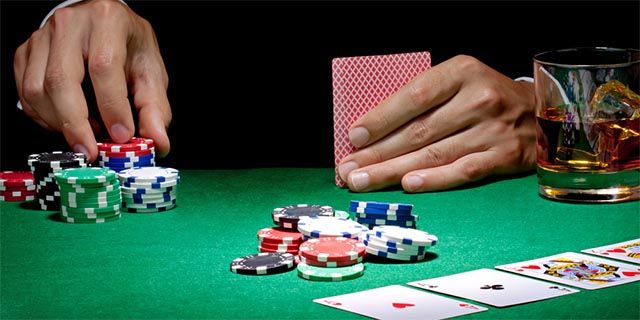Poker is a scary beast. When you know what you're doing, it can be fun, thrilling, and a beloved way to kill a bunch of hours, but when you haven't completely learned the ropes, poker can be the fastest way to lose all of your money, sanity, and hope in one swift and devastating blow.
So the question remains: will playing poker apps and games help you to win real at real poker? Well, it depends. The answer is complicated because poker comes in three variants:
- Singleplayer against artificial intelligence (e.g., virtual poker)
- Multiplayer with fake money (e.g., Facebook poker)
- Multiplayer with real money (e.g., a true online casino)
Poker becomes a different game depending on which variant you play in. The skills that can be learned in each variant may or may not help you to improve depending on which skills you intend to train.
Singleplayer Poker Against AI
Sometimes known as "virtual poker" (but not to be confused with "video poker"), this type of game is played by yourself against one or more computer-driven opponents. They involve virtual currency and eliminate almost every aspect of risk from the game. Poker mobile phone apps are the most common these days.
For the most part, these games will only benefit true newbies who have never played poker before.
Learn the rules: Perhaps the best thing about virtual poker is that it exposes the player to the basic rules of poker. What are pocket cards? What are community cards? What is a full house? Does it beat a straight? Virtual poker can help you get acquainted with these things in a way that's more engaging than simply reading a book.
Learn the flow: The flow of a game of poker is just as important as the rules. Who goes first? How do turns rotate? What are my options during my turn? What can I do after I fold? What happens when my money runs out? It takes experience to get comfortable with these things.
Become comfortable: Ultimately, virtual poker is only useful for acclimating to the poker environment. This comfort is important for playing well in a real game, but virtual poker doesn't help much past that. In fact, virtual poker can enable you to develop bad habits that will make you play worse in a real game.
Therefore, virtual poker is NOT a recommended teaching tool unless you've literally never played a hand of poker and want to learn the rules, flow, and terminology.
Multiplayer Poker With Play Money
Poker with play money is a big step up from virtual poker. The biggest change is, of course, the introduction of other players, and that change brings with it the potential to learn more things.
People are unpredictable: Everyone has a pattern, but for the most part, people are less predictable than artificial intelligence. Player dynamics are an important aspect of poker and they exist even when playing with play money, although to a much lesser extent than a game with real money.
Poker is random: Unfortunately, play money is pretty much worthless. As a result, play money games are often filled with reckless players who play extremely badly, yet they will still win from time to time. The takeover is two-fold: play money games are not the right place to learn proper strategies, and play money games over-emphasize the luck factor in poker.
Get used to losing: This is an extension of the above tip. Due to its randomness, poker is a game of variance. It's guaranteed that you're going to win some and lose some. Play money games provide a safe environment for getting used to this fact. Once you understand that losing is part of the game, you'll be better equipped to handle losses in a real money game.
Practice discipline: If you want to maximize your progress in a play money game, it's best if you first learn some strategies before you play, then use the play money session to practice those strategies. Don't try to win. Don't fret about losing. Play money games are an excellent opportunity to develop "muscle memory" with regard to poker strategy.
Multiplayer Poker With Real Money
Once you have a solid grasp of poker's fundamentals, there's really no way to improve except by playing in a real money game.
Risk management: The core gameplay of poker revolves around risk management and manipulating risk vs. reward to bend in your favor. You can't do that in a game of virtual poker or a game of play money because the risk just isn't there.
Money management: Also known as "bankroll management," money management is another crucial aspect of winning poker. At the table, you need to know how much you can afford to play and when to walk away. This isn't a skill you can learn without real money at stake.
Psychological mindgames: There is definitely an element of "mindgames" to poker, but you'll only see it in action at a table where humans, not AI, are playing, something is at stake, and the players are knowledgeable about the game. To really learn the psychological aspect of poker, you need to experience it firsthand and that's not going to happen in virtual poker.
Conclusion
So can poker games help you get better as a player? As a general rule of thumb, the answer is no. These games can help you get acquainted with the poker environment and allow you to practice specific skills (e.g., learning mathematical odds) but they won't teach you anything worth learning that wouldn't be better learned through a book, mentor, or sheer experience.
Note: Like many video games, poker can be an addictive activity - even when there's no real money gambling involved. Video game addiction is real so, if necessary, do take steps to prevent developing an obsession.
What do you think? Can virtual poker games help you become a better player or are they just a way to kill time? Share your thoughts with us in the comments!
Image Credits: Glamorous Poker Via Shutterstock [Broken URL Removed], Mouse and Cards Via Shutterstock, Shiny Poker Chips Via Shutterstock, Poker Player Via Shutterstock




